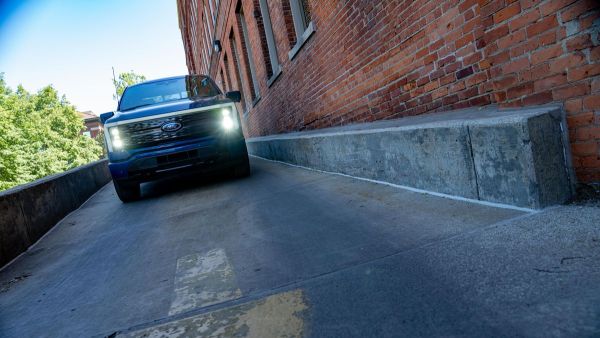ALBAWABA - Ford has some interesting ideas about what self-driving cars could do in the future. In addition to freeing drivers from the boredom of commuting, there's an idea that the car could drive away from its owner if they fail to make their monthly payments.
According to a document recently published on the United States Patent and Trademark Office's website, American automaker Ford is considering a system that would allow a car to autonomously leave its owner if they stop making their required monthly payments.
However, don't worry just yet; the patent has not been approved, and Ford insists it's just an idea. Ford stated in a statement, "We have no plans to implement this." The company received 1,342 patents last year, averaging 3.7 patents per day. Michael Messinger, a patent attorney and partner at the Washington, D.C.-based law firm Forsyth, explained that companies apply for patents to protect ideas from being used by others, whether they use the intellectual property themselves or not, and these processes can take a long time.
A Series of Annoyances
Before the car can drive itself away, late payers will go through a series of annoyances, starting with annoying messages on their smartphones and on the car's in-dash screens.
If the owner continues to ignore these messages, then, according to Ford's patent application, the car "initiates a multi-step repossession action."
The first step involves the owner making the overdue payments through alternative methods, such as disabling some car features like air conditioning, cruise control, or the radio. (This is already possible in many vehicles.) If that doesn't work, the car might become unusually noisy. The stereo system could be programmed to "emit an incessant and obnoxious noise each time the owner is in the vehicle," according to the patent.
There will be only one way to stop the noise, which will involve "contacting the lending institution to address the overdue payment." If that doesn't work, the car may render itself undrivable, refusing to unlock its doors.
Now, the situation has become more complicated, and to avoid all of this, you simply have to make the payment.
In some cases, the defaulter may need to drive to work to earn the money to pay back the loan. In such a case, the car itself could limit itself to allowing only work-related trips or perhaps grocery shopping or dropping the kids off at school, and during this time, the driver won't be able to enjoy the stereo, and the air conditioner may not work. Annoying noises that can't be stopped may also be part of this.
In the event of a medical emergency, according to Ford's patent application, the car could be allowed to drive itself to the nearest emergency room or even coordinate with emergency medical personnel to meet at a location, then the car will return to its owner once the situation is resolved.
In case the non-payment scenario continues, the car will receive an order to return to its original owner, and if the car is unable to fully self-drive in traffic, it may move itself to an easily towable location, such as the side of the road.
Preventing the Car From Leaving
Sometimes, late payers may take the step of locking their cars in a garage or placing them in a location that makes it impossible to simply drive away.
In the end, the only solution may be for the person to own an older model car.
Ford's idea for a self-repossessing car may not get an actual patent, but some of the ideas presented in this project could be applicable in the future, like a car that makes terrifying noises if its owner fails to pay the required fees.







